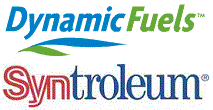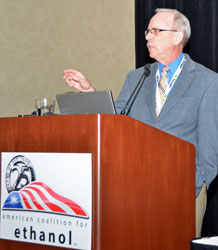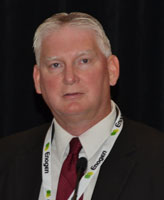Drivers who live and travel through Ottawa, Kansas now have access to E15. The Zarco 66 station located at 2518 E. Logan (intersection of I-35 & HWY 68) has become the second retail gas station to offer E15 in the U.S. Earlier this summer, the Environmental Protection Agency (EPA) gave final approval for the sale of E15 and customers are already showing great support for the higher blend of ethanol. On July 8, 2012 Zarco 66 began offering E15 to drivers in Lawrence, Kansas and the fuel sales are hitting high speeds.
 “We are excited to add a high octane renewable fuel choice for our customers on the go in Ottawa, Kansas as we will continue to reduce our dependency on foreign oil through the use of renewable energy sources,” said Scott Zaremba, owner of Zarco 66 stations.
“We are excited to add a high octane renewable fuel choice for our customers on the go in Ottawa, Kansas as we will continue to reduce our dependency on foreign oil through the use of renewable energy sources,” said Scott Zaremba, owner of Zarco 66 stations.
While ethanol has many advantages, one is that it has the ability to help motorists save money at the pump. According to an updated study authored by professors at the University of Wisconsin and Iowa State University, ethanol savings in the Midwest in 2011 were $1.69 per gallon while average savings across the county was $1.09 per gallon.
“American consumers are looking for a choice when it comes to fueling their vehicles, and they now have one more domestic, renewable fuel option with E15 becoming more commercially available,” said Renewable Fuels Association RFA) President and CEO Bob Dinneen. “Ethanol continues to help consumers during these difficult economic times by lowering prices at the pump and supporting more than 400,000 jobs across the country that can’t be outsourced.”
RFA is working with retailers as well as automakers and consumers to ensure E15 is used properly. Vehicles and light duty trucks manufactured after 2001 can take advantage of E15.
The association, along with the American Coalition for Ethanol (ACE) have been working together through their BYO Ethanol program to help interested gas retailers install pumps to sell higher blends of ethanol including E15 and E85. Those interested retailers can review the E15 Retailer Handbook for free to learn more about how to make additional revenue through the sale of E15.





 EPA issued the request for comments in response to petitions from the Governors of Arkansas and North Carolina last week seeking a waiver of the volume requirements for corn ethanol under the RFS. The request was submitted for publication in the Federal Register and the EPA will decide on the waiver request “within 90 days of receiving it, in consultation with the Departments of Agriculture and Energy.”
EPA issued the request for comments in response to petitions from the Governors of Arkansas and North Carolina last week seeking a waiver of the volume requirements for corn ethanol under the RFS. The request was submitted for publication in the Federal Register and the EPA will decide on the waiver request “within 90 days of receiving it, in consultation with the Departments of Agriculture and Energy.” 






